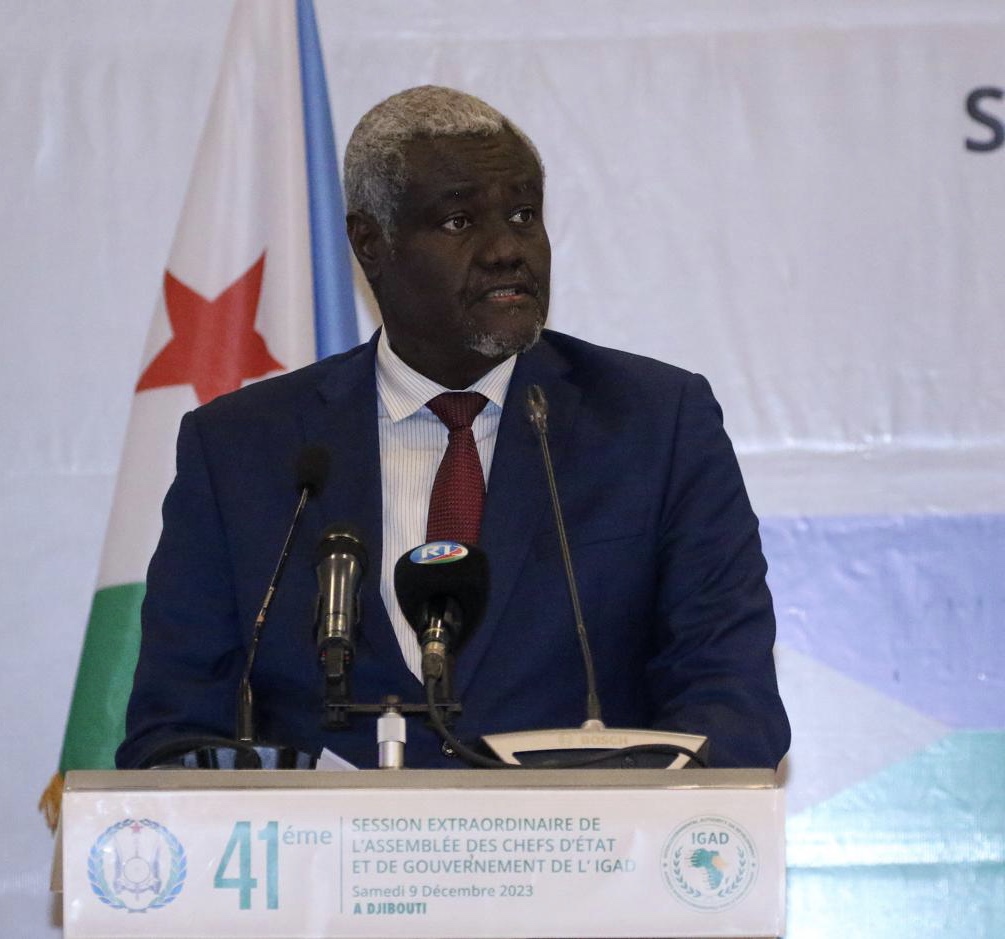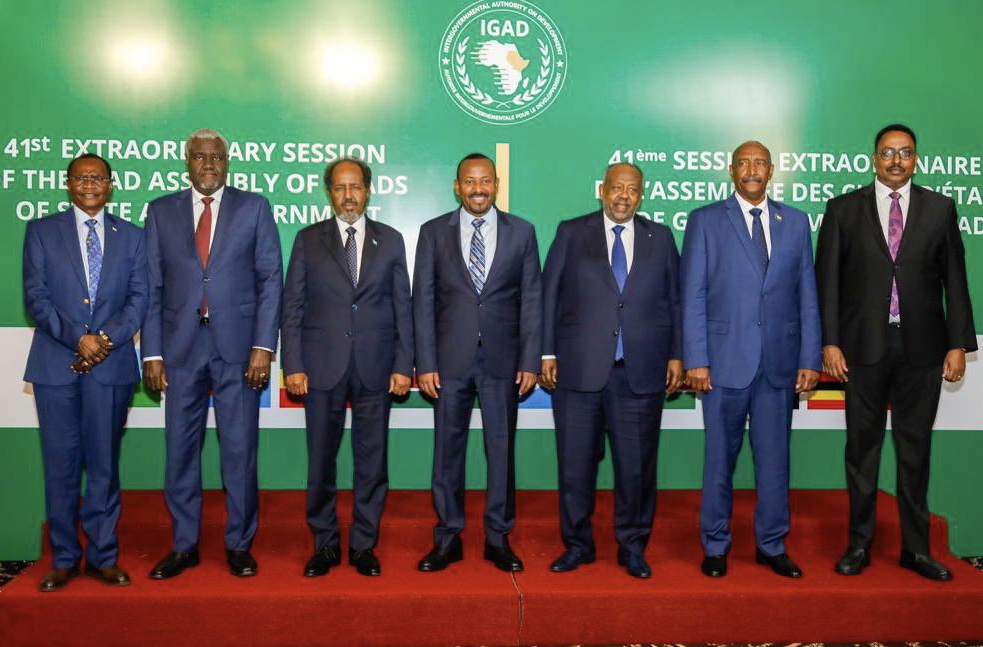The supposed ‘breakthrough’ conclusions of the IGAD and AU led Sudan Peace Summit, this weekend in Djibouti, have been called into question by the Sudanese government. They have openly dismissed whole sections of the final report as misrepresenting the true findings of the summit. In the wake of the failed although much trumpeted, US/Saudi, Sudan Peace initiative in Jeddah at the end of October, which had strong hopes of bringing about a ceasefire between the Sudan Armed Forces and the Rapid Support Forces, various regional and international actors have rushed to offer mediation efforts to end the clashes and to claim responsibility for a breakthrough.
US and Saudi Initiative failure led to a flurry of mediation offers from regional actors
Since the outbreak of hostilities between the warring factions in Sudan on 15th April, following an attempted military coup by Mohamed Hamdan Dagalo, commander of the Rapid Support Forces, there have been an estimated 9 to 10,000 Sudanese people killed and up to 12,000 injured. Nearly 5 million Sudanese residents have been internally displaced and over 1,3 million have fled the country as refugees. There have been a range of mediation attempts to bring about peace in the region, with different regional bodies offering their services. Multiple collaborations have been voiced, including the state of Egypt in concert with the African Union (AU), the Intergovernmental Authority on Development (IGAD) in concert with the tripartite mechanism (TPM) which involves the UN, and/or the AU and IGAD.
The US and Saudi summit in Jeddah, had hoped to deliver a breakthrough in October, but could only secure tertiary engagement with representatives of both sides, with the principal figures keeping their distance. All hopes of a positive outcome very quickly faded away. This weekend however, news broke that possibly the most significant breakthrough thus far had taken place as a result of a mediation initiative with the actual leaders themselves – Burhan and Hemedti, engaging in talks under the auspices of a collaboration between IGAD and the African Union. Both the US and Saudi, seem to have accepted that their roles as brokers had been compromised and decided that is was wise for them to take a back seat in negotiations.
Summit memorandum falsely suggested that the leaders of the warring factions had engaged in talks for the first time since the beginning of the conflict
Whilst the Summit statement hailed the event as the first time since the outbreak of the Sudan conflict on April 15th, that General Abdel Fattah al-Burhan, the Chairman of the Transitional Sovereignty Council of Sudan and the effective head of state of Sudan engaged in person with his former deputy Mohamed Hamdan Dagalo (Hemedti), the commander of the Rapid Support Forces, at the summit in Djibouti on Saturday, this engagement according to the Sudanese government, did not actually happen. General Abdel Fattah al-Burhan was noticeably present, but there was no sign of Mohamed Hamdan Dagalo. The suggestion that Dagalo had participated in the conference by telephone, was entirely manufactured.
Notwithstanding the lack of participation by ‘the leader of the rebel forces’, as the Sudan Foreign Ministry referred to Mohamed Dagalo, the summit in Djibouti did manage to successfully garner the attendance of a significant number of African leaders, including H.E. Dr. Abiy Ahmed, Prime Minister of the Federal Democratic Republic of Ethiopia; H.E. Dr. William Ruto, President of the Republic of Kenya; H.E. Dr. Hassan Sheikh Mohamud, President of the Federal Republic of Somalia; Hon. Amb. Dr. James Pitia Morgan, Minister for Foreign Affairs and International Cooperation of the Republic of South Sudan; and Honourable Vincent Bamulangaki Ssempijja, Minister for Defence and Veteran Affairs of the Republic of Uganda.

The mediators present also represented a powerful collection of senior regional body representatives including H.E. Dr. Workneh Gebeyehu, the Executive Secretary of IGAD; H.E. Moussa Faki Mahamat, Chairperson of the African Union Commission; H.E. Ramtane Lamamra, Personal Envoy of the UN Secretary General for Sudan; Ambassador Faisal Bin Sultan Al-Qabbani, Ambassador of the Kingdom of Saudi Arabia to the Republic of Djibouti; Ambassador Michael Hammer, US Special Envoy for the Horn of Africa; H.E. SylvIe Tabesse, Ambassador of the European Union to Djibouti and to IGAD; and Ambassador Ismail Wais (PhD), IGAD Special Envoy for South Sudan.
The summit boasted in a statement issued not at the end of the conference, but surprisingly on the following day, which stated that it had secured a major breakthrough with both warring sides having agreed to a ceasefire and an agreement to host a series of dialogue meetings to establish a practical way forward.
Summit statement is disavowed by Sudanese Government and declared ‘meaningless’
However, it was not long before that statement was openly and publicly disavowed by the representatives of the Sudanese government, who were adamant that the draft of the minutes and it’s conclusions of the summit, which had been sent at short notice – effectively a day late, represented a complete departure from the actuality of the discussions and conclusions which had taken place. Sudanese government officials on receiving the draft, were quick to dismiss whole sections of the draft as inaccurate and they expressed major reservations about the contents. They asserted that whole paragraphs had been inserted into the draft without justification and that certain wording seemed to have been deliberately used to change the meaning of key issues. What followed remarkably was the decision by the IGAD secretariat, to completely ignore the reservations and observations made by the Sudanese government officials and for them then to proceed in the issuing of a final statement without obtaining a consensus. This led the Sudanese government to declare the statement ‘meaningless’ until the observations and erroneous insertions have been corrected. The key issues of contention were detailed in a statement issued by the official spokesperson for the Sudan Ministry of Foreign Affairs on Sunday 10th December. These included:
· Reference in the statement to the participation of the Minister of State in the Ministry of Foreign Affairs of the United Arab Emirates in the summit, which declared the Foreign Ministry, was false.
· The refutation of the suggestion that there were IGAD consultative meetings with a delegation of the dissolved Rapid Support militia, which the statement said was untrue.
· The document failed to include a clear requirement made by the President of the Transitional Council that any meeting with ‘the leader of the rebellion’ and/or a ceasefire, needed as a prerequisite, the complete removal/departure of all rebel troops from the capital and their assembly outside it.
· It challeneged the section in the statement, which suggested that a phone call had taken place between heads of IGAD and ‘the rebel leader’, during the summit was false and should be removed. Such a phone call was apparently made between ‘the rebel leader’ and the Kenyan President, after the end of the summit.
· The Foreign Ministry statement also asked for the removal of any hint that the Sudan Armed Forces were part of an insurgency.
· It also referenced a failure to recognise the need for consultation with the government of Sudan in respect of any effort to resolve the crisis.


















